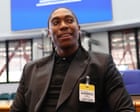
In a series of noteworthy updates from the realms of sports, music, and medical research, several key events have unfolded that illustrate the changing landscape in these fields. These stories reflect resilience, adaptation, and ongoing advancement amid challenges, capturing the spirit of innovation and perseverance.
Firstly, in the world of athletics, Caster Semenya, a prominent South African runner, has achieved a pivotal legal victory that emphasizes the importance of fairness and athletes’ rights. The European Court of Human Rights (ECHR) ruled in Semenya’s favor, highlighting that she had not been granted a fair trial in her case against the policy mandating her to reduce her natural testosterone levels to participate in women’s sports. This decision marks a significant milestone in her ongoing quest for equality and justice. The court’s ruling underscores a broader discussion on the human rights of athletes, particularly in terms of gender and biological characteristics. Semenya’s dedication to advocating for policy changes ensures that the voices of athletes are heard and respected in international sports.
Transitioning to the world of music, Jeff Lynne, the frontman of Electric Light Orchestra (ELO), has made the difficult decision to cancel what was to be the final live performance of his illustrious career due to health concerns. Scheduled to headline the BST Hyde Park festival in London as part of the farewell “Over and Out” tour, Lynne’s withdrawal was necessitated by a systemic infection. Fans and music lovers worldwide express empathy for Lynne’s situation, prioritizing his well-being over their disappointment. This moment serves as a poignant reminder of the human aspect of entertainment, emphasizing the importance of health and personal care even in the face of eagerly anticipated events. Many supporters hope for a future opportunity for Lynne to share his musical gifts with the world once more.
In the realm of medical research, a spotlight is being cast on the potential obstacles facing mRNA-based cancer vaccine development as regulatory scrutiny intensifies in the United States. Advances in messenger RNA (mRNA) technology have already showcased significant promise in battling various forms of cancer, including those notoriously difficult to treat such as pancreatic cancer and brain tumors. However, recent decisions to limit COVID-19 mRNA vaccines have prompted concerns among scientists regarding the continuity and progression of research in this innovative field. The potential for mRNA technology extends well beyond infectious disease, opening pathways to revolutionary cancer treatments, yet apprehension builds as the regulatory environment could impede this trajectory. Researchers continue to advocate for the preservation of scientific pursuits that harness the power of mRNA technology, aiming to contribute significant breakthroughs in medical treatment.
In conclusion, these stories from the diverse sectors of sports, music, and medicine highlight the dynamic, interconnected nature of human endeavors. Caster Semenya’s legal victory potentially sets a new standard for fairness and recognition in sports, while the health challenges encountered by Jeff Lynne remind audiences of the personal realities that accompany public performances. Concurrently, the ongoing dialogue around mRNA technology illustrates the complex intersection of regulatory practices and scientific innovation. As we reflect on these developments, there lies an underlying theme of resilience and the human capacity to adapt and move forward despite the challenges faced.
Source: {link}
